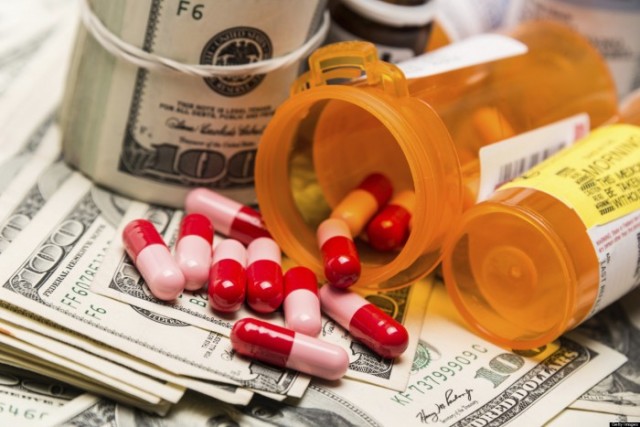Pharma drug side effects add nearly half a TRILLION dollars to U.S. health care costs each year
04/09/2018 / By Lance D Johnson

The never-ending cycle of side effects and adverse reactions that come from pharmaceutical drugs adds nearly half a trillion dollars to U.S. health care costs annually. A team of researchers from the University of California San Diego computed the true costs of pharmaceutical drugs.
The real reason health insurance and medical care is so expensive is because most of the “medicines” doled out are actually costly poisons that cause more health problems. The side effects of pharmaceutical drugs only cause more doctor visits, more testing, more medical intervention, and a cycle of drug dependence. So many people today do not understand what it feels like to be healthy, to be functioning with energy, strength, stamina, cognition, and strong natural immunity because they have been lied to and abused by this pharmaceutical system.
For example, the aluminum salts in an HPV vaccine can trigger seizures in a young girl, forcing her to need anti-seizure medication. This anti-seizure medication can cause insomnia, leading her to need a sleeping pill. The sleeping pill can cause attention deficit and memory recall issues, leading to more medication and more problems down the road.
Most pharmaceuticals actually initiate the symptoms of chronic disease, causing entirely new problems within the body. Statins are used to control cholesterol levels, but they quickly accelerate cognitive decline. SSRI’s are used to treat depression, but they often cause metabolic issues and weight gain that can exacerbate fatigue and depression. The researchers refer to these problems as non-optimized medication therapy. The problems encompass adverse reactions, prescription error, medication non-compliance or the development of entirely new diseases from perfectly prescribed pharmaceuticals.
The power of the elements: Discover Colloidal Silver Mouthwash with quality, natural ingredients like Sangre de Drago sap, black walnut hulls, menthol crystals and more. Zero artificial sweeteners, colors or alcohol. Learn more at the Health Ranger Store and help support this news site.
The researchers concluded that non-optimized medication therapy is costing the U.S. between $495.3 billion to $672.7 billion annually. This amounts to 16 percent of annual healthcare costs in the U.S. This staggering number reflects the cost of morbidity from treatment failure and new medical problems that arise from pharmaceuticals. When the numbers are broken down per individual, the cost of a treatment failure or new medical problem after initial prescription use is on average, $2,481 per patient.
This unsustainable U.S. healthcare system is infected by the medicine itself. To improve patient outcomes, the authors of the study suggest that pharmacists and physicians collaborate on comprehensive medication management programs. This would seem like a reasonable approach, if hundreds of thousands of doctors weren’t taking money from pharmaceutical companies in the first place. From August 2013 to December 2015, 810,716 doctors reaped $6.25 billion in disclosed benefits from pharmaceutical companies. This kind of pharmaceutical indoctrination of healthcare professionals only causes more needless prescriptions that lead to new diseases. Comprehensive medication management programs could ultimately just help doctors and pharmacists make patients more compliant with needless prescriptions.
Although medication non-compliance is cited as a problem in this study, non-compliance could actually be a great thing for patients, freeing them from perpetual side effects and also saving billions of dollars on healthcare spending. Many patients could be seeking to wean themselves from pharmaceutical dependence; they just need more answers on how to heal their body during this process – answers they don’t get from the poorly educated allopathic pill-pushing system. This weaning from pharmaceuticals and their ensuing problems could be better realized through better education of medical doctors and pharmacists on nutrition, superfoods, and medicinal herbs and greater openness to alternative therapies.
If allopathic healthcare professionals cannot accept this integration of natural healing into their practice, then they should coordinate with the naturopaths, chiropractors, physical therapists, healers, etc. and collaborate more with these professions.
For more articles on the fallout of Big Pharma and the ushering in of integrated medicine, visit Medicine.News.
Sources include:
Tagged Under: adverse events, allopathic medicine, bankruptcy, Big Pharma, Big Pharma fallout, bribery, drug cartels, drug dependence, financial burden, health care costs, healthcare costs, integrated medicine, medical education reform, new diseases, pharmaceutical dependence, prescription medications, side effects, treatment failures



















